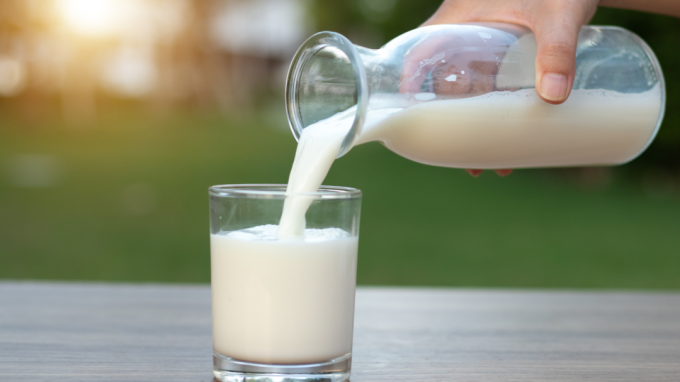
Cow's milk is a much appreciated food and, undeniably, has many nutrients. Because of this, several other foods were created from it, called dairy products.
However, over the years scientists have discovered some negative points associated with milk consumption, despite its benefits.
see more
Scientists choose an aquatic plant that is ideal for sustaining life…
North Korean leader Kim Jong-un appeals to the country's women among...
And of course, as these are interesting points for public health, these scientific warnings cannot be ignored.
In this article you will find out what adverse reactions milk can cause in the body and for which groups it may be contraindicated.

(Image: disclosure)
Take note of the warnings we present below and be careful when consuming milk from now on!
1. May reduce levels of some nutrients in children
Experts point out that children under 18 months of age should not consume bovine milk.
It turns out that the digestive system of these babies is not yet fully formed, and this turns milk into a real poison for them.
The substance is considered responsible for the reduction of essential nutrients for children in this age group, such as calcium, fatty acids and vitamin E.
For children under 18 months of age, the only recommended milk is breast milk.
2. It's very greasy
Milk is an extremely high-calorie food, as it contains a lot of animal fat.
Furthermore, it has percentages that vary between 4.7% and 6.3% sugar, depending on the type of bovine milk in question.
3. Its derivatives can do a lot of harm
The disordered consumption of dairy products such as cheese, condensed milk and yogurt can trigger serious illnesses such as diabetes, hypertension, multiple sclerosis and irritable bowel syndrome, in addition to promoting the accumulation of cholesterol bad.
4. May cause respiratory problems
Casein, a type of protein found in milk, is one of the base products for making glue.
This substance inflames the soft tissues of the respiratory system when it comes into contact with them, causing a reaction that temporarily makes breathing difficult.
5. It also impairs the absorption of nutrients in adults
Cow's milk is the perfect substance for the development of bovine puppies, just as breast milk is essential for the health of babies.
The substance has the perfect combination of nutrients and minerals essential for new oxen and cows to grow strong and healthy.
However, the human intestine does not have the same processing capacity as the bovine intestine.
Therefore, the components of cow's milk can destabilize our digestive functions. intestine, preventing important nutrients acquired from other foods from being absorbed by the our body.
6. Increases the risk of prostate and ovarian cancer
It has been proven that men who drink two to three servings of cow's milk daily have a 30% increased risk of contracting prostate cancer.
Meanwhile, women may be 66% more likely to develop some form of ovarian cancer if they consume cow's milk every day.
This alert is very important!
7. Unbalances hormonal production and activity
Bovine milk is full of hormones that are important for the development of calves into adulthood.
However, when we humans drink milk, these hormones become part of our body, coming into conflict with other hormones already present in our body.
This friction causes an imbalance in hormonal production and malfunction of the endocrine system, which can cause some symptoms such as the appearance of acne, especially in young women.
8. Impairs learning in some children
Children with some neurological conditions, such as Down syndrome and autism, cannot consume milk or its derivatives.
This is because certain substances present in milk, such as casein, affect the human nervous system, further worsening the neurological problems observed in these children.
9. May harm bone health
Retinol, a substance widely present in bovine milk, is one of the vectors of vitamin A.
Vitamin A in the form of retinol can make it difficult for the body to absorb vitamin D.
Vitamin D, in turn, is responsible for solidifying bone structures, and its lack can cause the onset of diseases such as osteoporosis.
10. Prohibited for those with asthma
The effects of casein on the respiratory system of some people can trigger the release of histamine, which is a vasodilating amine responsible for allergic reactions.
When a strong allergic reaction is created in the respiratory tract, mucus (phlegm) is produced. When released in excess, mucus can obstruct the airways, causing asthma symptoms.
In addition to the risks presented, milk can also cause following adverse effects:
Graduated in History and Human Resources Technology. Passionate about writing, today he lives the dream of working professionally as a Web Content Writer, writing articles in several different niches and formats.
